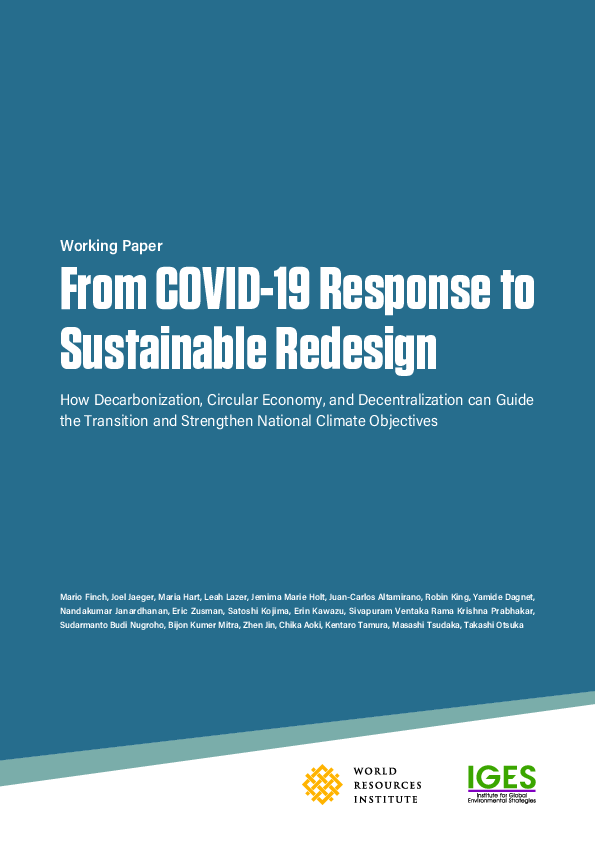From COVID-19 response to sustainable redesign: how decarbonization, circular economy, and decentralization can guide the transition and strengthen national climate objectives

World Resources Institute, Washington, DC
WRI - Washington, DC
2021
40 p.
epidemic disease ; economic recovery ; climate change ; circular economy ; decarbonization ; sustainable development
Working Paper
November 2021
Environment
English
Bibliogr.
"This paper provides recommendations and good practice examples of policies that governments have implemented to contribute to a sustainable and resilient recovery from COVID-19 as well as longer-term redesigns to spur transformative change toward a sustainable future in each of their economies.
Three mutually reinforcing transitions were identified, as part of an initiative under the Ministry of the Environment of Japan (MoEJ), to help reframe and prioritize policies to enable a sustainable recovery and redesign: decarbonization, circular economy, and decentralization.
Decarbonization: An impressive wave of net-zero emissions commitments has been announced in the past year. However, to ensure these are robust and credible, more effort is needed to enhance the 2030 Nationally Determined Contributions (NDCs) and correlate targets with net-zero commitments, avoid financing fossil fuels or carbon-intensive industries as part of the COVID-19 recovery, and take advantage of the jobs and economic opportunities of green investments.
Circular economy: Wasteful use of material and natural resources is exacerbating climate change and is a missed economic opportunity. Initiatives must shift their focus from “recycling” at the end of a product's life cycle to engaging in upstream activities focused on “reducing” and “reusing.”
Decentralization: Proper collaboration, dissemination of information, and coordination on planning and implementation is essential between national and subnational actors to unleash subnational climate action.
Subnational governments should be empowered, and inclusive planning should take place, especially at the local level.
In all three transitions, adaptation action, which plays a critical role in strengthening the resilience of economies and societies, and the financial investment needed to achieve each of these transitions need to be made a priority. All three transitions should be implemented in a way that ensures the transitions are just and equitable.
Applying these approaches to the COVID economic recovery can lead to better, stronger, more inclusive, and resilient growth."
Digital
The ETUI is co-funded by the European Union. Views and opinions expressed are however those of the author(s) only and do not necessarily reflect those of the European Union or the ETUI.